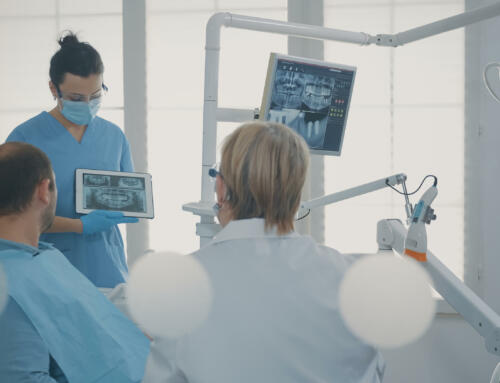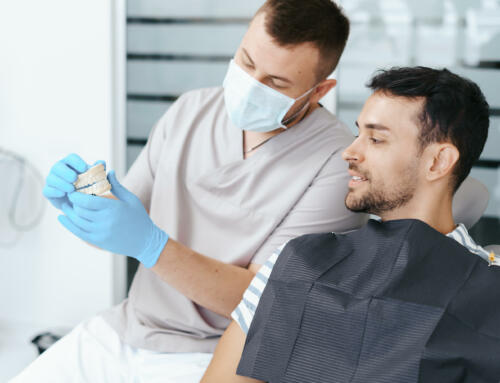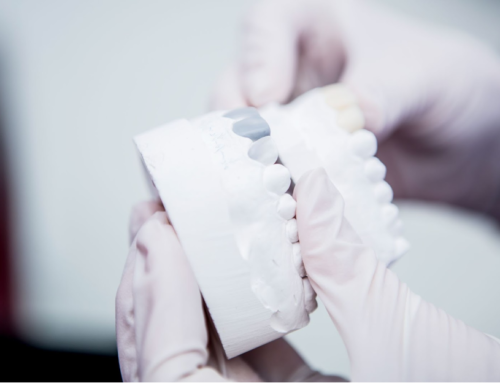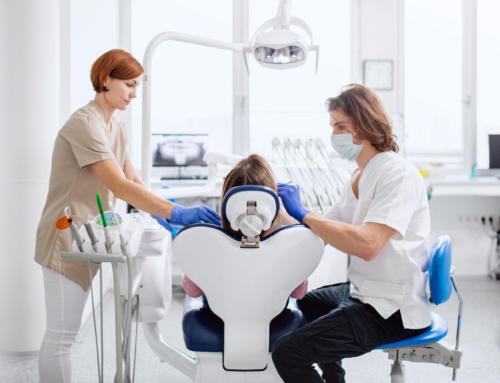
By David Hudnall, DMD
The pain that patients with TMJ-related problems experience is real and is usually attributed to some form of acute inflammatory process that can affect sleep patterns and quality of life. Often, patients will present with various signs and symptoms that seem vague or unrelated.
A good clinician must play detective to determine how the symptoms are related to one another to recommend and provide appropriate therapeutic treatment.
The Basics of TMJ
Temporomandibular Joint Disorders (a.k.a. Temporomandibular Disorders or TMDs) are a collection of conditions that cause pain and dysfunction in the lower jaw joint itself or the muscles and surrounding structures involved in mandibular movement. Disorders of the TMJ may be subdivided into three categories for convenience, depending on the symptoms that present. These categories include:
- Disorders of the joints and discs
- Disorders of the muscles of mastication
- Headaches and/or facial pain associated with TMJ disorders
Symptoms of TMJ
Common causes of TMJ disorders include stress, trauma to the teeth or mandibular jaw, malalignment of the teeth or jaw, grinding or clenching the teeth, poor posture, especially in the neck and upper back, arthritis, and continual chewing. Because the use of the temporomandibular joint is an integral part of everyday living, it is almost impossible to allow it to rest.
Often patients experience pain from its near-constant use, either subconsciously like nocturnal tooth grinding or by choice, such as when chewing gum.
Some of the more common patient complaints of temporomandibular joint syndrome may include:
- Jaw pain
- Popping or clicking sounds when the jaw opens or closes
- Referred pain to the ear or an earache
- Unexplained headaches or neck pain
- Stiff or sore jaw muscles, especially upon awakening
- Pain radiating to the temples
- Locking of the jaw joint after opening widely
TMJ can be difficult to diagnose because its symptoms can be vague. Some symptoms, such as headaches or ear pain, may seem completely unrelated to the jaw. To add to the confusion, some sufferers may experience few to none of these symptoms or may experience other rare symptoms that are infrequently associated with TMJ issues.
TMJ and Dentures
Dentures must be fabricated to mimic the optimal bite in an ideal relaxed position of the jaw while restoring both form and function and compensating for vertical dimension that the patient may have lost due to attrition of their natural dentition. Dentures with an inappropriate vertical dimension of occlusion can precipitate TMJ-related symptoms.
If the bite is too far open or is over-closed from what the patient has become accustomed to, the patient’s musculature or jaw joint may be forced to operate outside of its normal range of motion, leading to difficulty speaking and chewing, popping of the joint, and referred pain.
In addition to vertical dimension issues, dentures with a bad bite force the patient’s jaw to slide into position for the teeth to correctly interlock, cause the muscles to become overly tired and sore, or can cause dislocation of the jaw joint when chewing. Left uncorrected, excessive wear to the denture teeth will occur over time, making the bite even worse and leading to TMJ-related pain.
Answering Patient Questions
Patients typically have many questions about their condition and want to know how to deal with TMJ problems. Let’s address some of the most common TMJ concerns.
Do Dentures Cause TMJ?
TMJ and dentures can be related. And dentures can exacerbate existing TMJ issues if the dentures are not made correctly. Much like ill-fitting shoes, dentures that don’t fit correctly aren’t going to miraculously become more comfortable with time.
The good news is the problem is easily diagnosed. If you are experiencing symptoms shortly after receiving new dentures, try removing your dentures for a day or so to see if the symptoms resolve. This is a good indicator that the dentures are contributing to your discomfort. See your dentist right away for an evaluation.
Even older dentures that were perfectly designed when delivered can cause TMJ-related problems as they wear out over time. If you begin to experience symptoms with dentures that you have worn for several years that do not resolve within a few days, it may be time to replace your dentures.
Will Surgery Fix My TMJ?
Surgical intervention is always considered a last resort and may be appropriate in severe cases that do not resolve using home remedies or reversible treatments. However, you should be aware that surgery of any type does not come with a guarantee that the issue will be fixed. The most common complication of TMJ surgery is a permanent loss of range of motion.
Will My TMJ Ever Go Away?
Here’s what you need to know about the disorder:
- You’re probably grinding your teeth. It’s possible to learn to recognize and control habits such as clenching your teeth, chewing gum, and biting your nails.
- TMJ problems often run in families. There’s evidence that grinding is common among family members. Studies have shown a familial pattern.
- The use of certain substances might play a role. Certain drugs can influence grinding, like selective serotonin reuptake inhibitors (SSRIs) used to treat depression, alcohol use, and smoking.
Luckily, acute TMJ disorders often respond to home remedies, including:
- applying ice packs to the affected joint
- inflammation reduction with nonsteroidal anti-inflammatory drug regimens
- avoidance of gum chewing
- massage or gentle stretching exercises of the jaw and neck muscles
- changing your lifestyle to reduce stress and allow for restorative sleep
When home treatment does not work, medical intervention may include dental splints, Botox injections, physical therapy, and selected prescription medications. The prognosis for TMJ patients is generally good. The majority of sufferers can manage their own symptoms with self-care and home remedies.
How to Treat TMJ: The Options
Because TMJ syndrome is a multi-faceted issue that presents a differing range of symptoms in different patients, it is recommended that the practitioner begin treatment with the most conservative, reversible therapies possible. While there are still a number of unknown factors associated with how to predictably treat TMJ, potential risk factors for painful jaw disorders have been identified in a large-scale clinical study conducted at the University of Buffalo.
Findings provide insight into the disease process and identify that “people who develop jaw pain disorders exhibit specific characteristics including greater trauma to the jaw, more movement limitations and noises in the jaw, more headaches, and generally a worse overall medical status.”
Top Services at Stomadent Dental Laboratory
Properly-constructed dentures can actually relieve TMJ issues and improve quality of life. Dentures fabricated using Stomadent’s digital workflow are designed and manufactured to exact specifications for precise fit and comfort. Doesn’t your patient deserve to wear the most comfortable and aesthetically-pleasing dentures possible?
See the full line of Stomadent’s traditional and CAD/CAM digital dentures available at Stomadent Dental Laboratory today!




![The Lucitone Denture Advantage [Best Practices + Advice]](https://stomadentlab.com/wp-content/uploads/2022/08/lucitone-promo-1-500x383.jpg)







